This week we thought we would talk a bit about wood charcoal, how it is made and how it is used and why it is so important here.

First of all, understanding the history of charcoal helped us appreciate the method used here. Kingsford Charcoal is the number one charcoal company in America and has 80% of the market. The company was originally owned by the Ford Motor Company and came about as a way to use the generated waste from fabrication of the wood parts for the original Model T car (steering wheels, frame, dashboard, wheels, etc.). Henry Ford suggested that all of these wood scraps consisting of stumps, branches and sawdust could be processed into charcoal. Orin Stafford at the University of Oregon invented a method for making pillow shaped briquettes combined with tar and bound together with corn starch. Thomas Edison designed the first factory and Edward Kingsford, a man married to Henry Ford’s cousin, ran it. Charcoal Briquettes were sold out of Ford Dealerships first to smokehouses and then later to consumers packaged together as a “Picnic Kit” capitalizing on the link between motoring and outdoor adventure. Today charcoal is made from charred softwoods such as pine and spruce which is then mixed with ground coal and other ingredients to make the popular charcoal briquette (Thanks Wikipedia!).
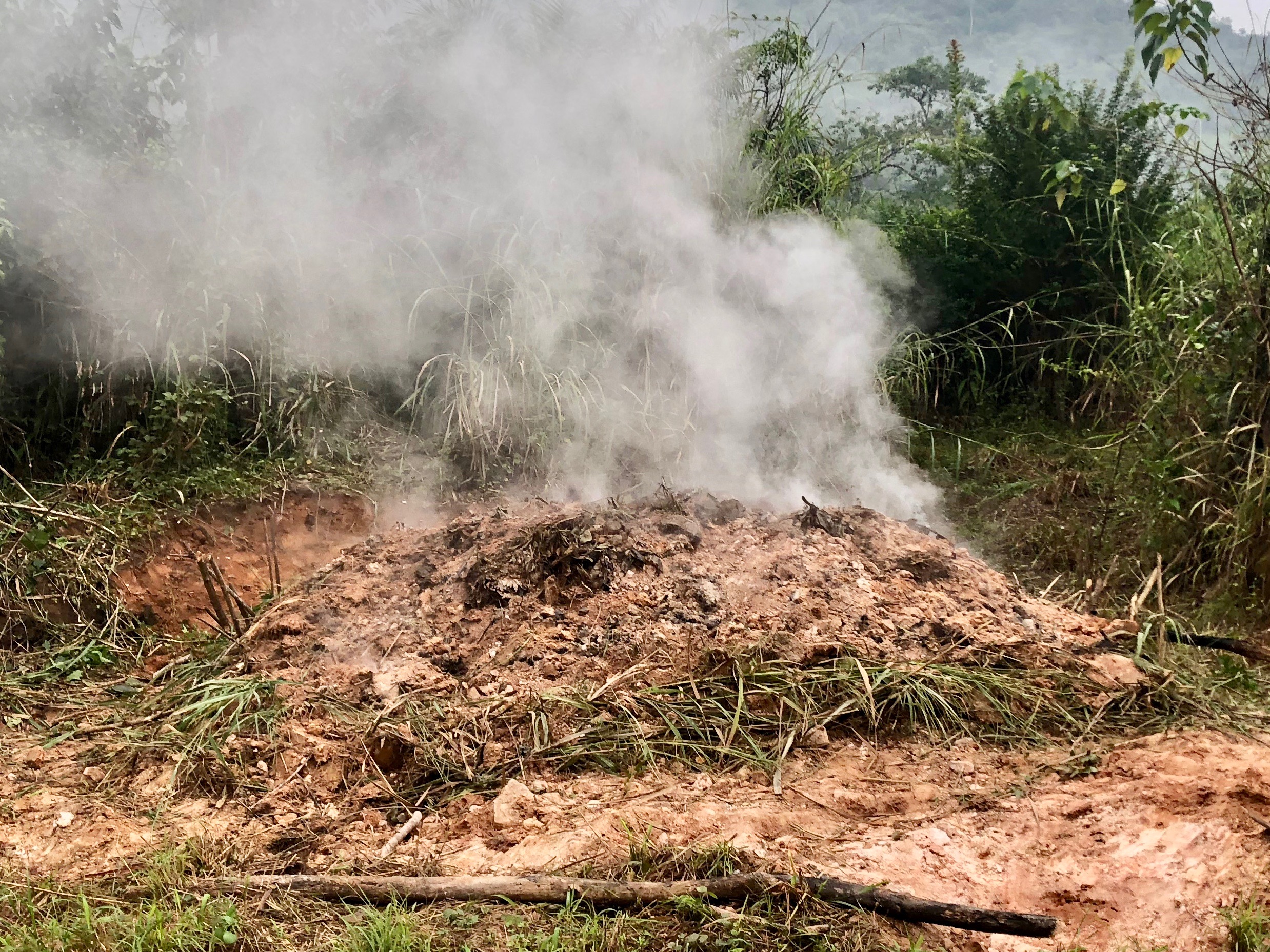
Here in Sierra Leone there are no charcoal briquettes, but there is still charcoal. The definition of charcoal is helpful here: Charcoal is the carbonaceous material obtained by heating wood or other organic substances in the absence of air. Here that is done by cutting wood into 3-4 foot strips, putting them in a pile, covering them with palm fronds, leaves and some dirt, and then allowing them to dry for a couple of days before setting fire to the pile. The pile will smolder for about 5 days and the heat produced will char the wood. At that point, the
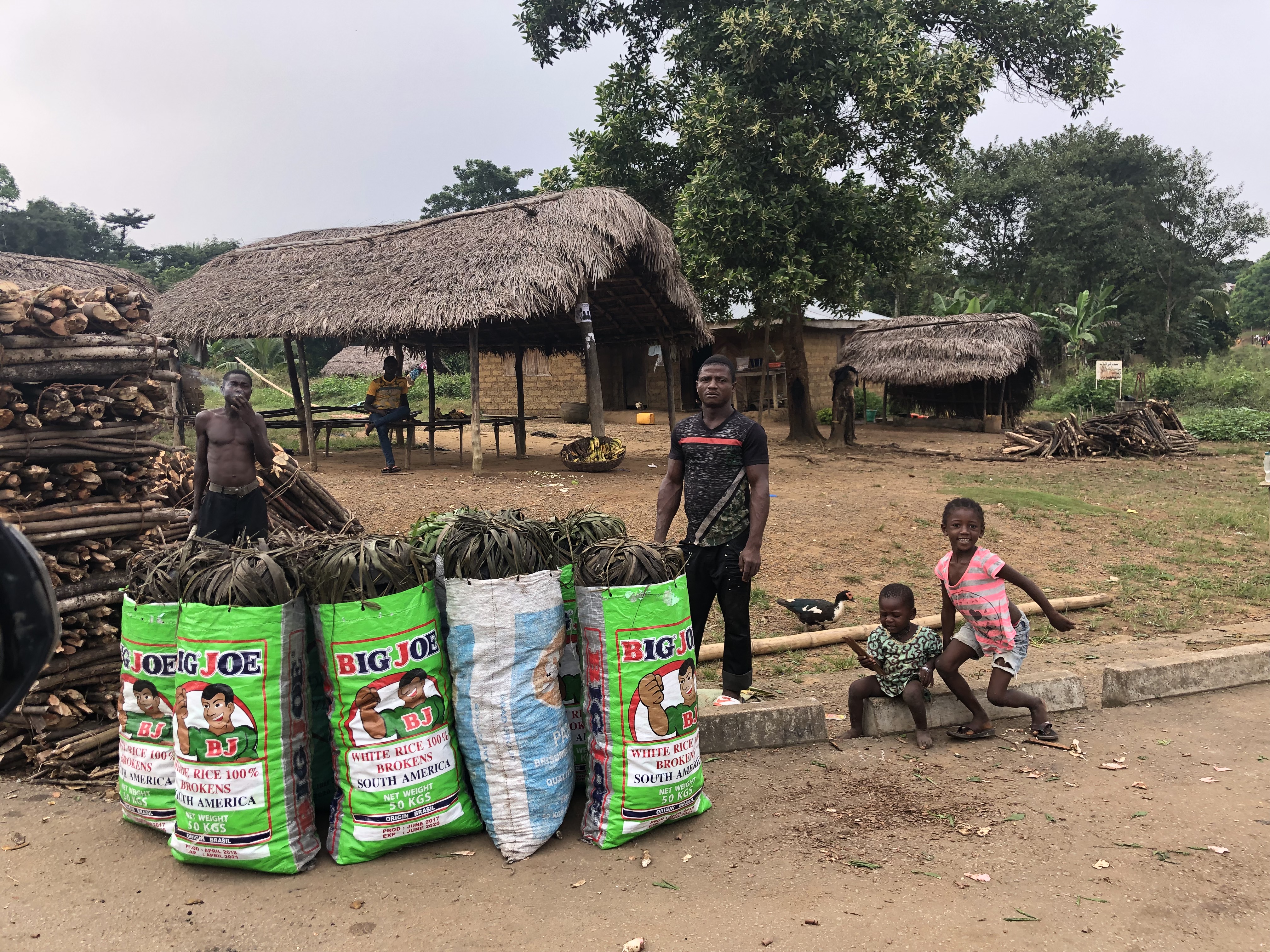
charred wood is removed and chopped into small charcoal bricks, put into recycled rice bags and sold in the market. In Sierra Leone one bag sells for about $1.50-2.50 USD, depending on where in Sierra Leone it is sold. Here in Kenema, bags are less than $1.50. In Freetown, they are about $1 more, due to the cost of transportation. Overall in Sierra Leone, only 7% of the people use charcoal, while 87% use raw wood. In Freetown, that number is considerably higher due to the lack of availability of raw wood due to urbanization. The advantage of the charcoal is that it burns hotter and cleaner than raw wood (less smoky), and more slowly. The big disadvantage is the resultant deforestation and carbon emissions.
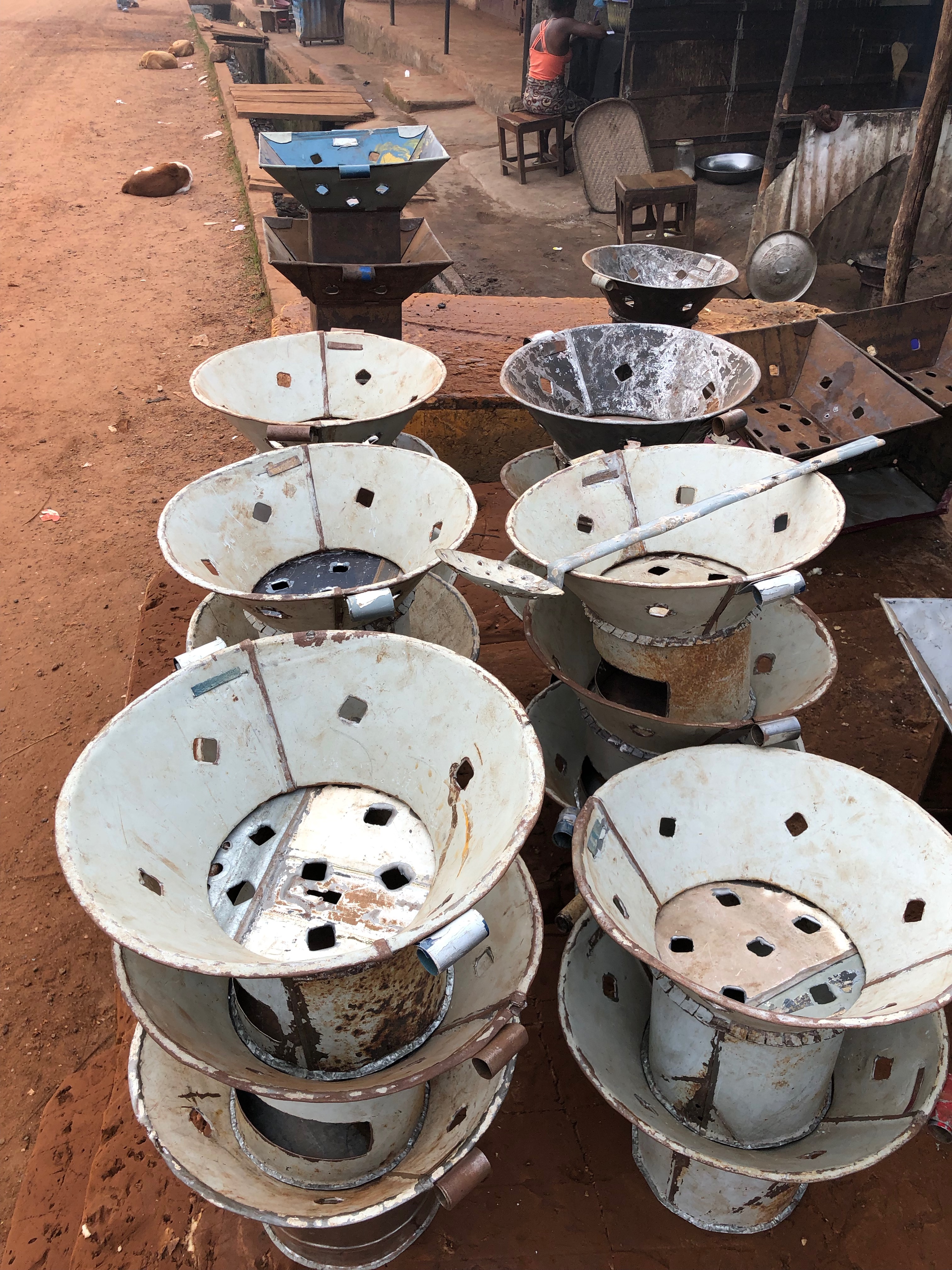
In order to cook with charcoal the most common stove is called a coal pot. It is made of aluminum and constructed by hand in such a way as to let plenty of air into the chamber where the charcoal is located. There are several places in Kenema that sell these coal pots, including the men at OTC. We took this picture this morning on our walk. Women will use these coal pots either once or twice a day to cook hot food. If twice, it will be in the morning and evening. If once, it will only be in the evening.
While cooking over a campfire in the States is unique and often learned at girls camp, here it is a way of life. As we have taught YM/YW leaders about joint activities, we have had a good chuckle about those activities centered on outdoor cooking. Nearly everyone in Africa is an expert already!
Weekly Highlights
After two very busy weeks back to back things slowed down for us this week. On Monday morning I was able to play basketball with most of the Elders from the Kenema Zone. The court and the baskets were not so great, but we had a wonderful time playing. Elder Dunn, Elder Marrett and I won the three on three tournament and then we played a game of knockout. Elder Dunn won the first game and then some fire must have dropped from the sky because I couldn’t miss and ended up winning the second game. It was a lot of fun. I have really missed playing.
On Tuesday we went with Elder Adjety and Elder Pyrah to the Burma Branch where we met with Mamie Sam, Abubakar Sonnie and Jesiah Kanu and worked with them on submitting family names for temple ordinances. Between the three of them, we were able to help them submit names requiring more than 50 temple ordinances. They were so excited to be involved in this important aspect of the covenant path of which President Russell M. Nelson speaks. Seeing their pedigree charts online and generated temple cards gave us all a feeling of gratitude that the gospel ordinances are not just for people living here on earth now, but also for those who have lived here and are now on the other side of the veil. We are so grateful for the spirit of Elijah which was in full force on Tuesday!
Wednesday and Friday we spent most of the days working on a 5th Sunday outline for the Branch Presidents to teach to their branches about self-reliance, the law of the Fast and how fast offerings are to be used. This is being done under the direction of the District President, Jonathan Cobinah. The intent of the training is to help the branch presidents teach their members the role they play in helping each other become self-reliant. Another objective is to understand better the definition of the “poor and the needy” as it applies here in Kenema.
Thursday was Thanksgiving and we ended up making two trips to Bo. The first was to take the Zone Leaders early in the morning to catch their ride to Freetown for the Mission Leader Council. Since it was so early we decided to come back and attend the District Council of the Kenema South District where Elder Pyrah is the district leader. We loved the discussion on the Book of Mormon challenge and how scriptures from the Book of Mormon can help the missionaries teach more effectively. At noon we left the district council (it was running long) and headed back to Bo to have a delicious Thanksgiving meal with Elder & Sister Moomey. The turkey looked a lot like chicken, and the potatoes and gravy were exquisite. We always love spending time with the Moomey’s and this Thanksgiving was no exception!

We did have one other significant event on Friday, and that was the burning up of the alternator on our generator. Ugh. Painful to be without that beast. We are not sure what happened, something caused the alternator (that is the part that generates the electricity) to break and begin smoking as if it was on fire. As soon as I realized what happened I shut it down, but the damage was done. When the generator “went”, it took the microwave with it, so it was a double whammy. Fortunately for us, Eku was able to repair the microwave in a couple of days, replacing a resistor and several diodes along the way.

On Saturday, President Cobinah called a meeting of the District Councilmen and Branch Presidencies to discuss the upcoming changes at the first of the year. I was surprised how much discussion there was on what I thought was already understood. I am so impressed with President Cobinah’s insight and understanding of those he leads, knowing that unless he would take time to teach about this important change, some of the branches would not understand it. President Clawson was also in attendance and shared with the brethren in attendance that the new Africa West policy is that all cash has to be handled with two Melchizedek Priesthood holders present. While this has been the norm in the States for many many years, here the policy has not been as tight. The result has been too many good men have been tempted with abusing the Lord’s funds and have ended up outside of the church looking in. Hopefully this new policy will be followed with exactness and blessings will result.
On Sunday we were on the road by 6:30 am, to pick up the Zone Leaders and President Cobinah and head to Tongo. While we have not yet received approval for home group status for the people there, we expect it this week. President Clawson had brought some hymnbooks and sacrament trays from Freetown so we took them with us. There were again 43 people in attendance. This time 11 of them were members. We took the missionaries so they could meet the people they will be teaching once home group status is obtained. Sacrament meeting was wonderful Talks were well prepared and delivered. President Cobinah spent some time talking about the importance of staying with the church. As we continue to study the gospel and serve others, the natural result will be our desire to grow in the gospel and provide church service. It does no good to be baptized, making covenants with God, and then at some point become disinterested and walk away. During Sunday school we talked about tithes and offerings. What I was most impressed with were the questions posed by those who are not yet members. For example, if I have a testimony of the church, aren’t I robbing God if I don’t pay my tithing even if I have not yet been baptized? What a sweet and wonderful question posed by Sister Rebekah! There was no one trying to find reasons not to pay tithing, it was just the opposite, there were many questions about what God expected of each of them. How we love the people of Tongo!
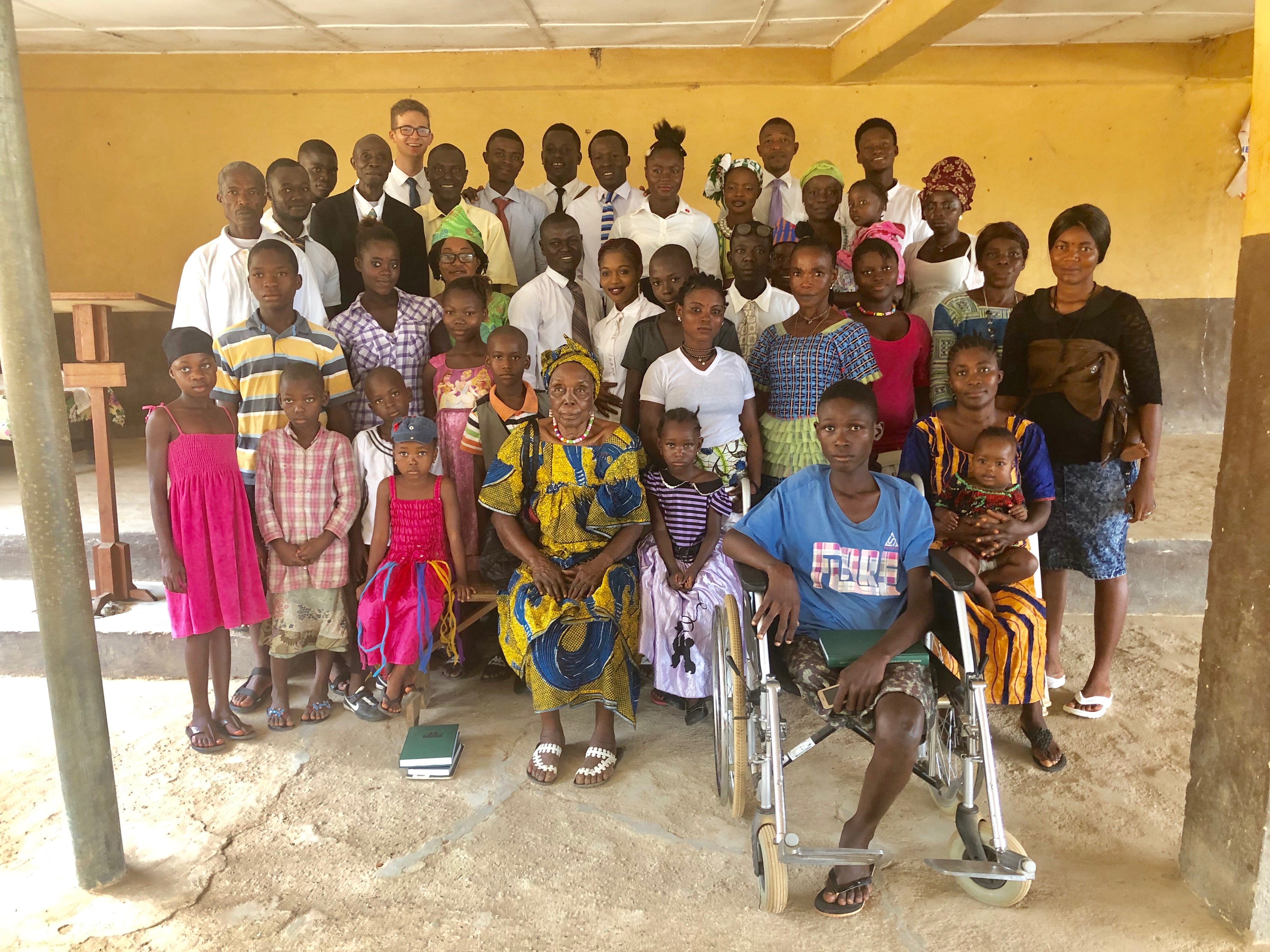
In the picture here you can see Ishmael in the front. He is the young man to whom we took the wheelchair from OTC. Ishmael was proud to announce that now that he can get around, he wants to start going to school. How I hope it will happen for him! He is one of the most sensitive, kind, spiritual people we have ever met.
Well, some do like it hot. The rainy season is winding down and the days are becoming warmer and warmer. Just as wood is made into charcoal by heat devoid of much oxygen, which then burns hotter and with less smoke, so also can we be purified through the fire of our own afflictions. That process is called sanctification. If we want to be like Jesus, then we too must be rid of our impure selves so that we can be more effective in the building of the kingdom. We are grateful for our experiences here in Sierra Leone which are helping (we hope) to refine us and make us better servants. The Saints here live their entire lives in the fires of affliction, and yet they press on with the hope of becoming like our Savior. Our hope is that we can do the same. Bring on the heat!
Discover more from Kunz Corner
Subscribe to get the latest posts sent to your email.
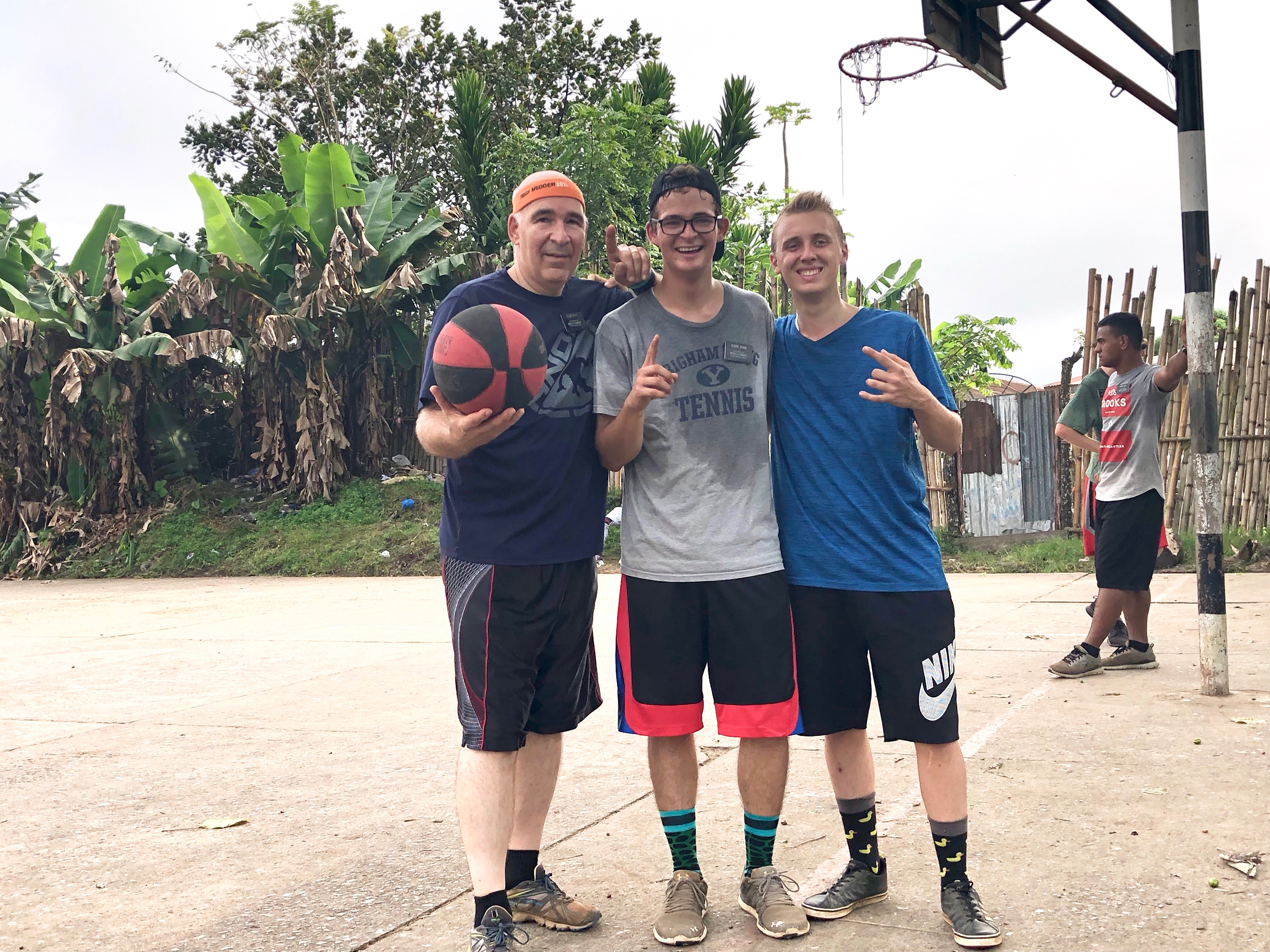
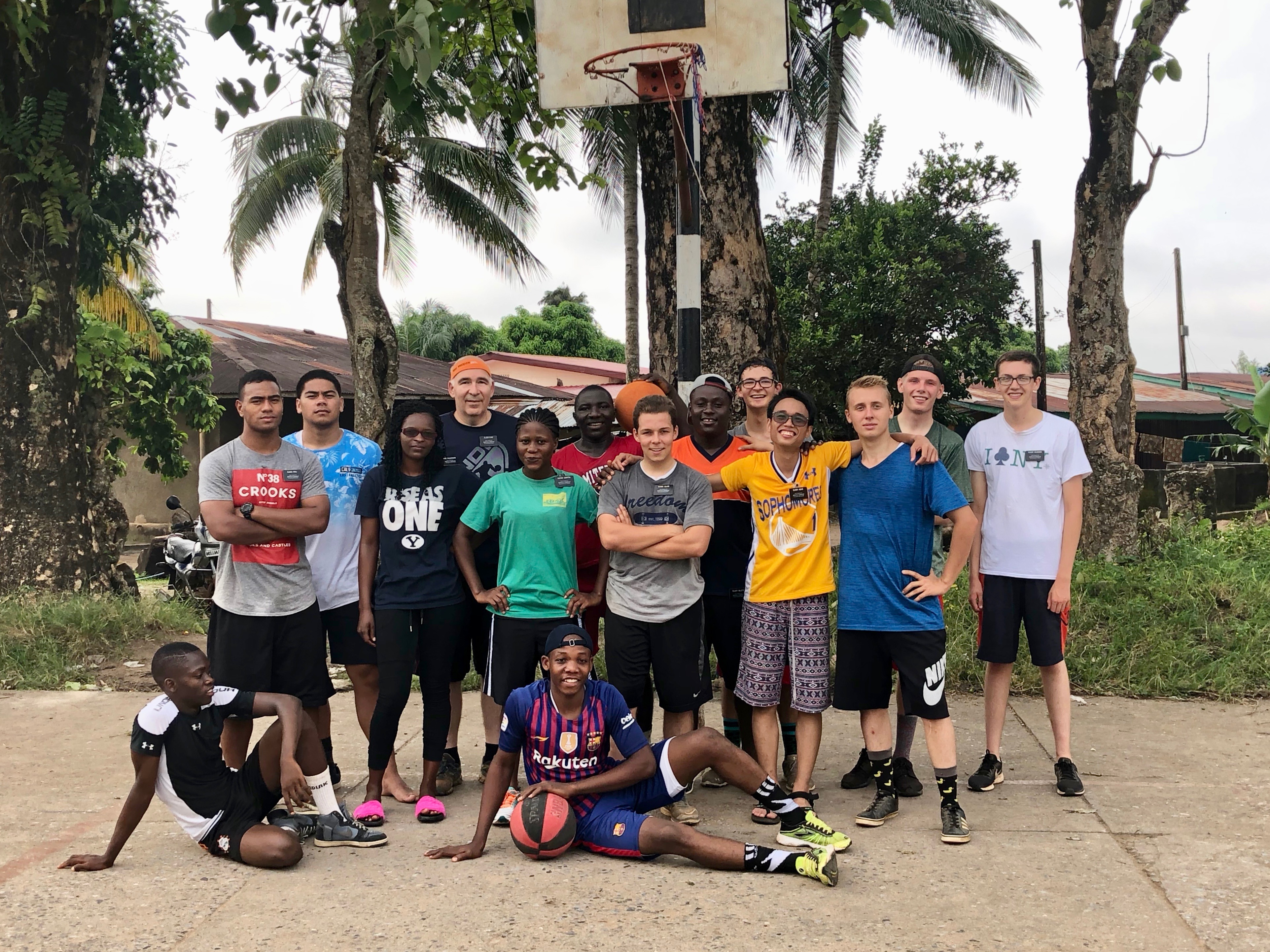
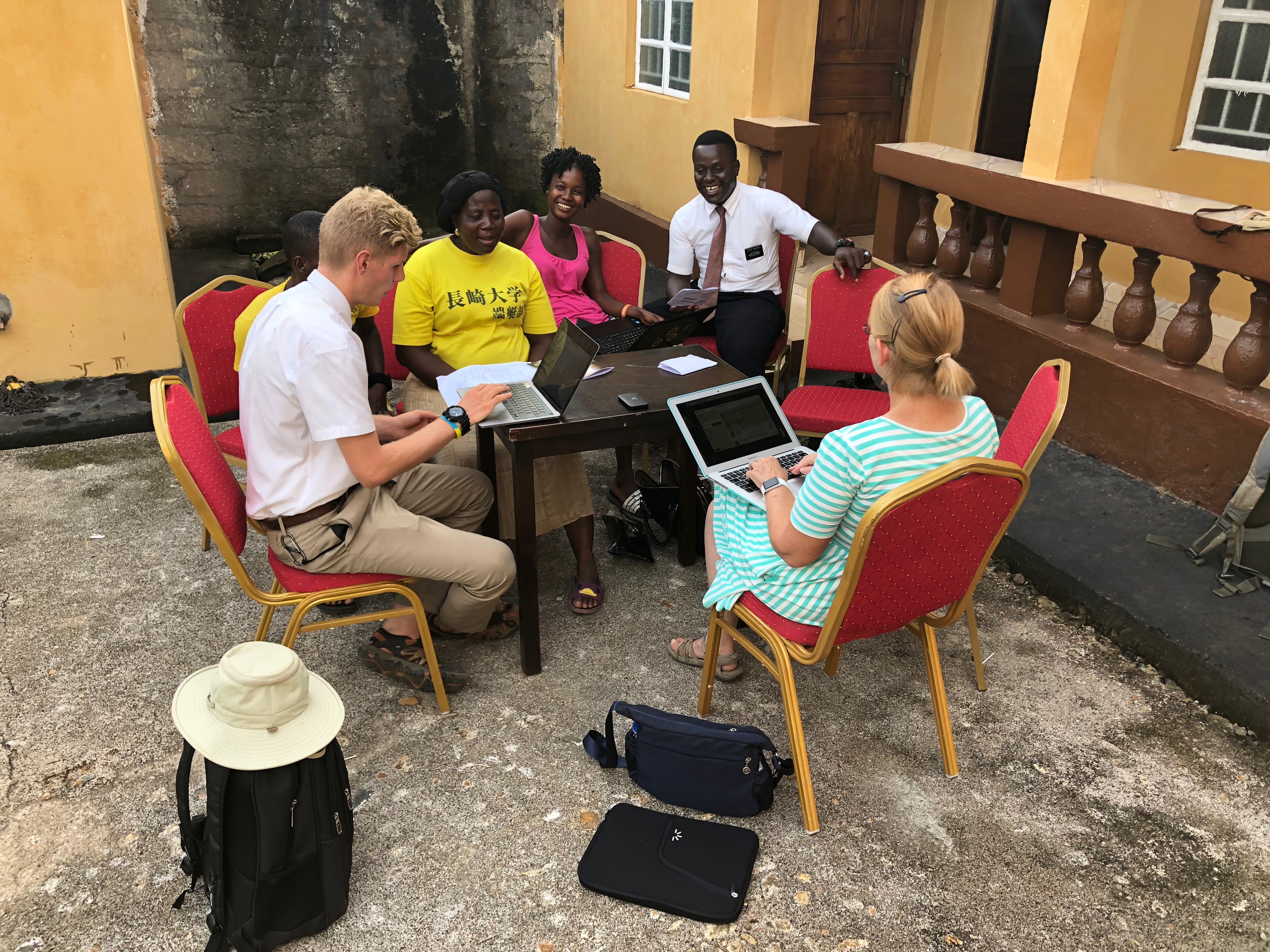
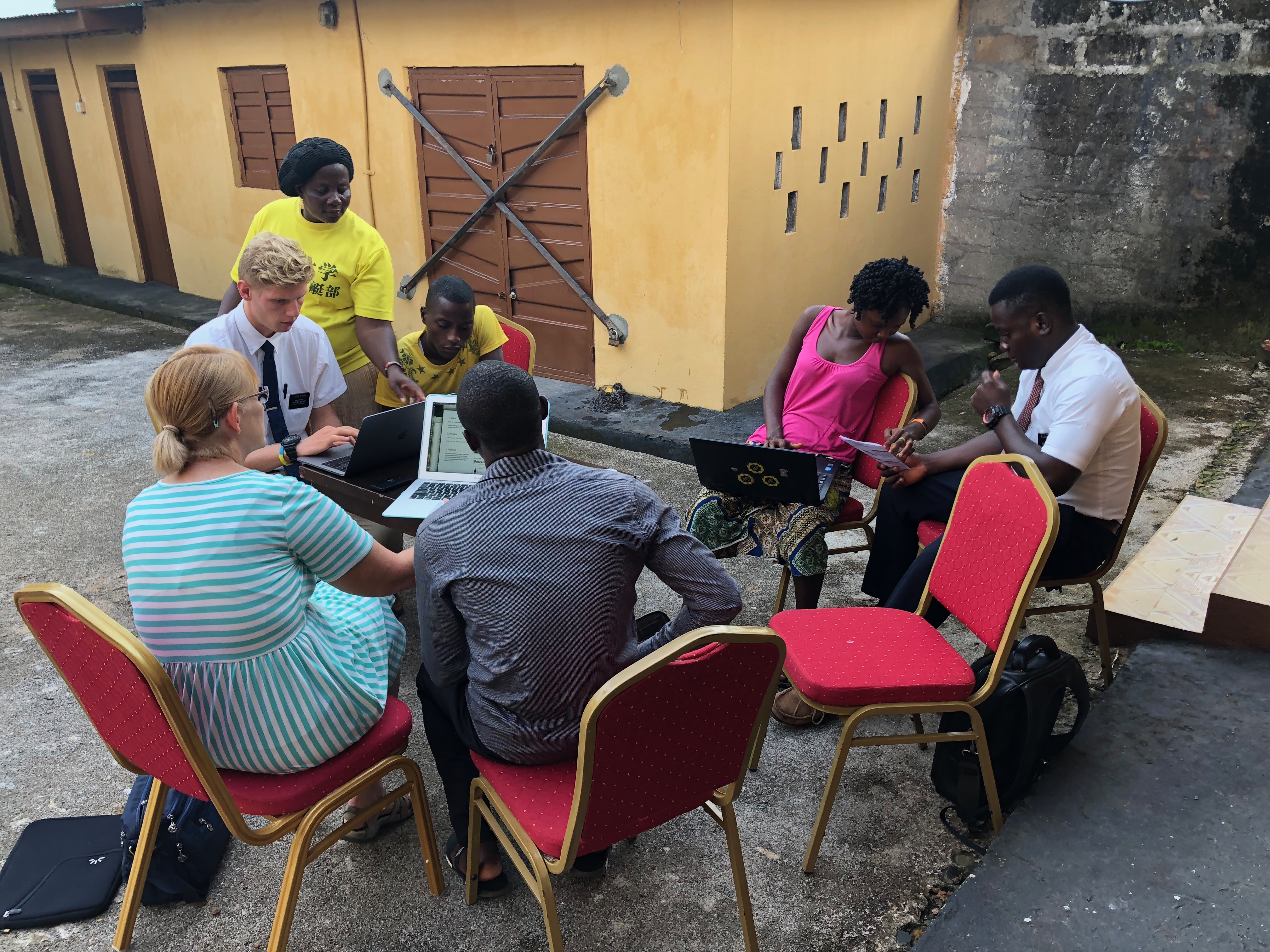
Like you – I say “bring on the heat!” ❤️👍🏻
Great to hear you guys are doing so well. 🤗
LikeLiked by 1 person
Thanks Leslie!
LikeLike